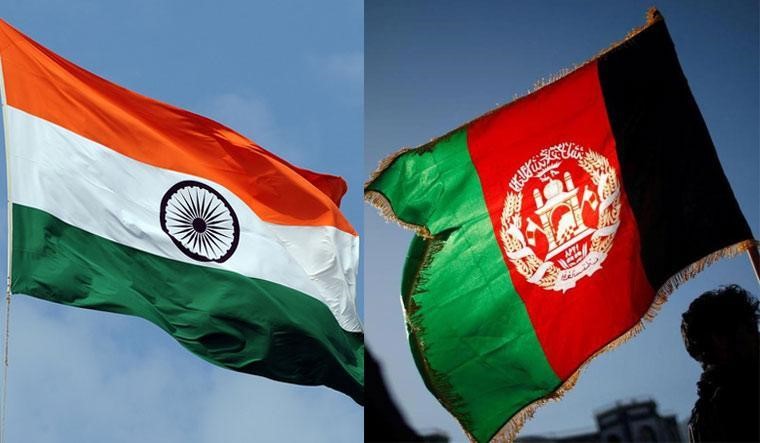India’s Strategic Engagement with the Taliban Regime
Syllabus:
GS-2:
India and its Neighbourhood , Effect of Policies & Politics of Countries on India’s Interests
Focus:
India’s Foreign Secretary recently held a high-level meeting with the Taliban Foreign Minister in Dubai, signaling India’s incremental steps toward cautious engagement with the Taliban regime since their takeover in 2021.
Background and Historical Perspective
Initial Skepticism (2000):
- Mullah Abdul Salam Zaeef met India’s High Commissioner to Islamabad, Vijay Nambiar.
- Nambiar assessed that the Taliban was deeply aligned with Pakistan, making engagement challenging.
- Described the chances of mutual understanding as bleak due to the Taliban’s strong association with Pakistan’s interests.
Policy Shift Since 2021
- First Contact in Doha (August 2021):
- Hours after the US exited Afghanistan, India initiated contact with the Taliban.
- Ambassador to Qatar, Deepak Mittal, met Sher Mohammad Abbas Stanekzai, the Taliban’s political office head.
- Stanekzai, an alumnus of the Indian Military Academy, expressed interest in maintaining cultural, economic, and political ties with India.
- Cautious Engagement Strategy:
- India maintained a limited engagement
- Called for an inclusive government representing all ethnic groups and ensuring women’s rights.
- Delivered 16 tonnes of essential medicines in December 2021, signaling separation of humanitarian aid from political differences.
Humanitarian and Technical Assistance
- Aid and On-Ground Presence (2022):
- Sent humanitarian aid for earthquake-affected regions in Khost and Paktika provinces.
- Deployed a technical team to its embassy in Kabul to coordinate aid delivery.
- Support for Afghan Society:
- Criticized the Taliban’s ban on women in universities (December 2022).
- Advocated for UN Security Council Resolution 2593, emphasizing human rights and negotiated political settlement.
Diplomatic Developments
- Meetings with Taliban Officials:
- January 2024: Indian diplomats held talks with Amir Khan Muttaqi, Afghanistan’s Foreign Minister, in Dubai.
- Muttaqi sought Indian support in infrastructure rebuilding and requested visas for Afghan businessmen, patients, and students.
- Challenges with Recognition:
- India does not officially recognize the Taliban regime, citing security concerns.
- No functional visa section exists at the Indian embassy in Kabul, complicating the visa issuance process.
Strategic Interests and Regional Context
- Geopolitical Considerations:
- India’s policy is influenced by the Taliban’s deteriorating relations with Pakistan, including military clashes and refugee issues.
- China’s growing presence in Afghanistan is also a concern for India’s strategic positioning.
- Security and Counterterrorism:
- India’s core concern remains ensuring Afghan territory is not used by anti-India terrorist groups.
- Discussions have included rehabilitating refugees and strengthening cultural ties, such as through cricket.
Challenges in India’s Engagement with the Taliban:
- Lack of Official Recognition:
- India does not recognize the Taliban regime, complicating formal diplomatic interactions.
- Security Concerns:
- Potential use of Afghan territory by anti-India terrorist groups poses significant risks.
- Human Rights Violations:
- The Taliban’s policies, such as banning women from education and employment, contradict India’s democratic values.
- Geopolitical Competition:
- China’s growing influence and infrastructure projects in Afghanistan challenge India’s regional standing.
- Weak Governance in Afghanistan:
- The Taliban struggles with governance, capacity-building, and retaining skilled personnel, creating instability.
- Pakistan Factor:
- Pakistan’s adversarial stance and cross-border attacks create additional complexities in Afghanistan-India relations.
- Operational Limitations:
- India’s embassy in Kabul lacks a functional visa section, hampering people-to-people connections and trade.
Way Forward:
- Incremental Engagement:
- Continue cautious engagement to ensure security while addressing mutual interests, such as infrastructure development.
- Focus on Humanitarian Assistance:
- Provide aid for education, healthcare, and rebuilding efforts while emphasizing human rights concerns.
- Regional Collaboration:
- Work with international partners, including Iran and Central Asian countries, to stabilize Afghanistan.
- Track and Neutralize Threats:
- Strengthen intelligence-sharing and counter-terrorism efforts to prevent misuse of Afghan territory.
- Leverage Cultural Diplomacy:
- Utilize cultural and historical ties, such as sports and education, to foster goodwill.
- Engage with Global Institutions:
- Advocate for adherence to UNSC Resolution 2593 to ensure inclusive governance and respect for human rights.
Conclusion:
India’s evolving relationship with the Taliban reflects a pragmatic and strategic approach to safeguard its security and geopolitical interests while extending humanitarian aid. By engaging cautiously, India aims to balance its investments in Afghanistan with the need to address security threats and maintain regional influence amidst a dynamic global context.
Source: IE
Mains Practice Question:
Examine the challenges and opportunities in India’s engagement with the Taliban regime. How can India balance its strategic interests and humanitarian commitments in Afghanistan? (250 words)




